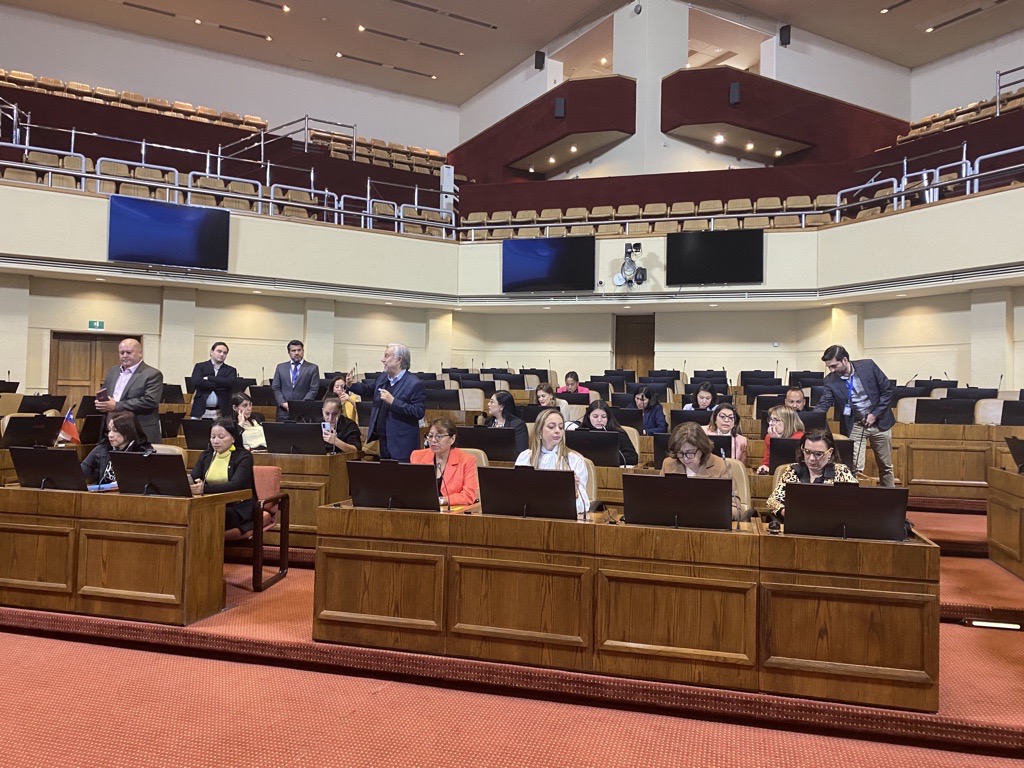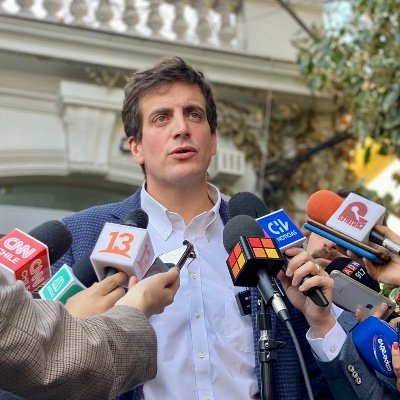HDP Alumni Profile: Diego Schalper Sepúlveda

The House Democracy Partnership (HDP) is a bipartisan commission of the U.S. House of Representatives that works directly with over 20 partner parliaments around the world to support the development of effective, independent, and responsive legislatures. HDP is proudly implemented by the International Republican Institute (IRI) and the National Democratic Institute (NDI).
In this month’s alumni profile, the Honorable Diego Schalper Sepúlveda, a Member of the Honorable Chamber of Deputies of Chile, shares his experience participating in HDP programming.

What parliament and chamber are you a member of?
Since 2018 I have been Member of the Honorable Chamber of Deputies of Chile. The Chilean Congress is a bicameral legislature composed of two chambers: the Chamber of Deputies (lower house) and the Senate (upper house). Both chambers employ a mixed-member proportional representation system for elections. The legislative process requires the approval of both chambers for a bill to become law, with potential disagreements resolved through negotiation.
What HDP program did you participate in?
I participated as a speaker at the “Legislative Forum on Economic Empowerment of Women,” specifically on a panel titled “Transformative Alliances, Building and Developing Male Allies.”
What do you want other people to know about your country?
Chile is a stable and democratic nation characterized by a reasonable level of political discourse. Renowned for its diverse and vibrant tourist offerings, the country boasts a wealth of attractions that cater to a wide range of interests. From the breathtaking landscapes of the Atacama Desert to the pristine beauty of Patagonia, Chile provides a rich tapestry of natural wonders. Additionally, its cities showcase a blend of modernity and historical charm, offering visitors a multifaceted experience.
One of Chile’s distinguishing features is its entrepreneurial spirit, reflected in the resilience and innovation of its people. The nation has fostered an environment conducive to creativity and business ventures, contributing to its economic dynamism. Overall, Chile invites others to appreciate its stability, democratic values, varied tourism possibilities, and the enterprising nature of its populace.
Why did you decide to become a member of parliament?
I decided to become a member of parliament driven by a genuine sense of public service. I firmly believe in the transformative power of legislation as a means to contribute positively to society. Moreover, I am convinced that those of us fortunate enough to have had educational opportunities carry a responsibility to actively participate in the social changes necessary for the advancement of our countries. This commitment to making a meaningful impact through legislative measures has been a driving force in my decision to pursue a role in parliament.
Looking back on the HDP program, what was most impactful for you?
I believe it’s crucial to have the opportunity to engage in meaningful discussions with fellow congress members from the region, who hold diverse perspectives and opinions. These discussions focus on tackling the social challenges we collectively face, emphasizing a united approach, shared responsibility, and solidarity. This approach helps us avoid unproductive confrontations and plays a significant role in fostering a democratic culture in our region.
In my case, I found it particularly positive to have a space where, as a man, I could openly discuss and express my willingness to address fundamental issues related to the challenges women unfortunately face in our societies. It’s essential for all of us to take responsibility, actively working to ease caregiving burdens and promoting equal opportunities, freedom, and the full development of everyone in our countries.
How are you applying your experience from the HDP mission to your role as a member of parliament?
I am always looking to learn about best practices from countries around the world to promote responsive, effective government, and strengthen democratic institutions. Central to our work is peer-to-peer cooperation and dialogue to build technical expertise in legislatures that will enhance accountability, transparency, legislative independence, access to information, and legislative oversight.
What information, if any, that you gained through the HDP program have you shared with fellow members of parliament?
I value the opportunity offered by HDP and IRI to connect with parliamentary colleagues from across the region. Once we know each other, it becomes easier to exchange information about the topics we discuss at the Forum and I have served as bridge to expand connections with fellow Chilean members of congress, enhancing debates and facilitating further exchange. These relations have also provided opportunities to tackle important and complex cross-border issues affecting our region, such as organized crime, human trafficking, and migration. I look forward to continuing collaboration in future events and programs with HDP and the IRI, working together to strengthen democracy, freedom, and contribute to development.
What advice would you give to new members of parliament?
I would suggest that they specialize in specific issues and focus on making legislative contributions in those areas. It’s important not to lose sight of the fact that laws play a crucial role in organizing people’s lives and society as a whole. Therefore, being well-prepared is not just a recommendation but a responsibility, considering that our work directly influences the lives of citizens and their family.
What accomplishments in parliament are you most proud of?
I am particularly proud of our legislative efforts to strengthen security measures, specifically in the protection of law enforcement officials and the imposition of stricter penalties for organized crime. Substantial strides have been made in enhancing overall security. Additionally, I am proud of my contribution to the “Agreement for Chile,” which served as a pivotal mechanism for addressing constitutional issue in the country.
Top